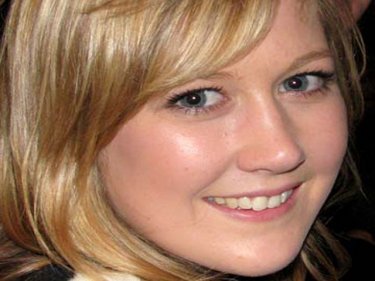The 'Sixty Minutes' program took samples from a Chiang Mai hotel room for testing and found traces of an insecticide, chlorpyrifos, which is banned from domestic use in some countries.
A link is also being drawn with the mystifying case of the deaths of young tourists American Jill St Onge and Norwegian Julie Bergheim on Phi Phi in 2009.
A Phuketwan reporter visited the Laleena guesthouse on Phi Phi soon after the deaths while samples of household chemicals were being taken for testing, but no cause of the fatalities was ever established.
Sarah Carter's death was one of seven in Chiang Mai over a period of several weeks earlier this year. The deaths have yet to be adequately explained by local authorities, who believe they were coincidental.
According to New Zealand reports, the 'Sixty Minutes' program has produced ''credible evidence'' that Sarah Carter died due to insecticide poisoning.
Chemical samples were taken from the bedroom that 23-year-old Ms Carter stayed in at the Downtown Inn, at a time when the entire fifth floor was being pulled apart and cleaned.
Before leaving for Chiang Mai, 'Sixty Minutes' spoke to a New Zealand scientist who suspected insecticide poisoning.
''I think she's been killed by an overzealous sprayer who has been acting on the instructions of the hotel owner to deal with the bed bugs,'' chemical expert Dr Ron McDowall, who works for the United Nations cleaning up toxic rubbish dumps, was quoted as saying on the site 3news.co.nz.
He said the traces brought brought back were small, but the fact that the chemical was found three months later, in a room that had been scrubbed, points to chlorpyrifos poisoning.
Among other theories is one that goes that the heavy use of chemicals on foodstuffs grown around Chiang Mai may have left residues in a meal eaten by Ms Carter and her two friends, who also fell ill but survived.
Latest Second autopsies on the bodies of two Swedish tourists may be the only hope of determining what caused their deaths in a Krabi bungalow riddle.
Two Swedes Die in Krabi Shower: Riddle Remains
Phi Phi's Tourist Deaths: A Lingering Riddle
Latest There are fewer deaths more tragic than holiday deaths, and no mystery more puzzling than the riddle of what killed two young women on Phi Phi one year ago.
Phi Phi's Tourist Deaths: A Lingering Riddle
Phi Phi Deaths Riddle: Surviving Tourists Speak Out
Killer On The Loose The Phuket region has seldom sniffed a mystery like it: What killed two young tourists, one an American and the other a Norwegian, on the popular holiday island of Phi Phi?
Phi Phi Deaths Riddle: Surviving Tourists Speak Out
Phi Phi Deaths Riddle: Norway Chases Answers
Latest Police in the home district of one of the young victims of the riddle of Laleena Guesthouse on Phi Phi are reopening the investigation and hoping to determine a cause of death.
Phi Phi Deaths Riddle: Norway Chases Answers
Why Pursuing the Truth Matters for Tourism
Opinion/Analysis Does it matter if the truth is never known about mishaps that kill tourists on and around Phuket? It matters because of trust. Only once the whole truth is told can trust be restored.
Why Pursuing the Truth Matters for Tourism
Phi Phi Mystery Deaths: The Room Maid's Account
Phi Phi Photo Album Thai guesthouse maids have a way of knowing what goes on and the maid at the Laleena on Phi Phi was close to two mysterious deaths. This is her account.
Phi Phi Mystery Deaths: The Room Maid's Account
Dead Tourist 'Pushed off Phi Phi': Boyfriend
Latest The boyfriend of an American who died in strange circumstances along with a Norwegian woman on Phi Phi has rejected suggestions that they argued.
Dead Tourist 'Pushed off Phi Phi': Boyfriend





I wouldn't call this an overdose. Please call it what it is : exposure to the chemical. Overdose is not the correct word to describe this tragedy. An overdose implies Sarah voluntarily ingested the chemical. That is not true. The chemical was sprayed in her room and she was exposed to the chemical. Please correct the wording in this article.
Posted by AndrewF on May 8, 2011 16:48
Editor Comment:
We don't make implications, readers draw conclusions.